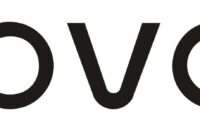LOS ANGELES–(BUSINESS WIRE)–OTITOPIC – A clinical-stage dry powder inhalation of aspirin pharmaceutical company pioneering the development of antithrombotic treatments for use at the time of suspected acute myocardial infarction (MI), today announced the successful conclusion based on PD results of a clinical trial for its lead drug: Dry Powder Inhalation of Aspirin (ASPRIHALE™).
ASPRIHALE™ is considered to be safe and well tolerable. The observed pharmacokinetic (PK) and pharmacodynamic (PD) profile supports the intended regime for the pivotal clinical study in 2020. In the recent clinical study conducted, the inhibition of AA-induced platelet aggregation was evaluated at each sampling timepoint. Dosing with ASPRIHALE™ inhaled-aspirin formulation resulted in complete inhibition of AA-induced platelet aggregation at Two minutes post dose versus 30 minutes for 162 mg chewable aspirin. The effect was maintained through 24 hours.
Serum thromboxane (TxB2) was measured at each sampling timepoint. Following dosing with the ASPRIHALE™ inhaled-aspirin formulation, TxB2 levels fell rapidly over the first two minutes (more rapidly than chewable aspirin) and continued to decrease reaching a minimum throughout the first hour. For the 162 mg chewable aspirin tablet, TxB2 levels declined more gradually over the first 30 minutes, reaching a minimum around four hours. Maximum suppression was sustained until the 24-hour sampling timepoint for both treatments. The antithrombotic effect of ASA was apparent earlier for the ASPRIHALE™ inhaled-aspirin formulation than for chewable aspirin.
Aspirin is an antithrombotic treatment used at the time of suspected acute MI. Using ASPRIHALE™ dry powder inhalation formulation of aspirin displayed faster, more potent inhibitory effects on the activity of platelets. ASPRIHALE™ inhaled-aspirin formulation completely inhibited platelet aggregation in two minutes. Also, significant reduction in mean ADP-induced PA (max and final) was observed within 2 minutes with Inhaled ASA groups, whereas with chewable ASA was observed at 20 minutes. This result is in line with the vision that ASPRIHALE™ will play crucial roles in mediating inhibition of platelet aggregation and suppression of thrombosis.
Research conducted at Harvard University (Cambridge, MA, US), and published this year in JAMA Neurology, found that daily use of low-dose ‘Baby’ aspirin is related to an increased risk for bleeding within the skull for people without heart disease. This prompted the American Heart Association and American College of Cardiology to change their guidelines in March 2019.
“Effect of Aspirin on Cardiovascular Events and Bleeding in the Healthy Elderly” https://www.nejm.org/doi/full/10.1056/NEJMoa1805819 “The use of low-dose aspirin as a primary prevention strategy in older adults resulted in a significantly higher risk of major hemorrhage and did not result in a significantly lower risk of cardiovascular disease than placebo. (Funded by the National Institute on Aging and others; ASPREE ClinicalTrials.gov number, NCT01038583.)”
“Millions of people take a daily aspirin for heart health. They might not need to” https://www.usatoday.com/story/news/health/2019/07/23/study-millions-should-stop-taking-aspirin-prevent-heart-attacks/1802216001 The Harvard study presents how at least 29 million people taking a daily low-dose aspirin should review the guidelines. Clinicians should be very selective in prescribing routine daily low-dose aspirin for people without known cardiovascular disease.
In contrast to the complexities of oral administration, particularly in urgent need situations, with the ever-present variables of stomach contents (ref: Moore, et al), as well as differing gastric and duodenal pH levels, all of which profoundly influence the absorptive efficiency. ASPRIHALE™ inhalation delivery offers far more direct and rapid access to ubiquitous platelets in the systemic circulation. With the lungs’ extensive, thin pulmonary epithelial surface, from the primary trachea-bronchial tree extending down to the pulmonary alveoli, it offers a remarkably large absorptive surface area (140 m2, which is potentially 70 times the adult human BSA!) for a compound with the chemical properties of ASA.
The advantage of ASPRIHALE™ effect on pulmonary epithelial absorptive surface area, membrane permeability, minimal protein binding and very rapid absorption into the systemic circulation maximize the distribution volume for rapid onset of action 10 times faster than chewable aspirin at the time of suspected acute MI.
Kambiz Yadidi, CEO of Otitopic, said: “We are highly encouraged by the level of safety, tolerability, and data observed with the dry powder inhalation of aspirin. We are proud to own the intellectual property of such a revolutionizing lifesaving product.” ASPRIHALE™ data demonstrated 100% inhibition of AA-induced platelet aggregation in TWO minutes (10 times faster than 162mg chewable aspirin).
Otitopic believes that the clinical benefits the ASPRIHALE™ trial has yielded, and the data linking this antiplatelet activity through ASPRIHALE™ inhaled-aspirin formulation responses, support and confirm the mechanism of action with our approach. Otitopic will continue working to advance to its pivotal clinical trial planned for 2020, to improve the lives of those who need better treatment options at the time of suspected acute MI.
About OTITOPIC™ Inc.
OTITOPIC™ Inc. (www.otitopic.com) is in clinical stage with a track record of success in pharmaceutical product drug delivery and drug device development. ASPRIHALE™ is a proprietary dry powder inhalation of aspirin formulation delivered via portable dry powder inhaler (DPI), expected to enter the bloodstream faster than oral tablets at the time of MI. Otitopic is on track with ASPRIHALE™ to file an NDA for a novel drug-device combination product in rescue management of suspected acute MI. Otitopic is pioneering a new class of dry powder inhalation in the cardiovascular field, based on the company’s proprietary drug delivery platform. This patented technology leverages a novel mechanism of action that enables rapid inhibition of platelet aggregation, aimed at providing powerful new therapeutic capabilities. Otitopic is dedicated to making better antiplatelet treatment, to provide high-risk MI patients with a faster-acting alternative for management of suspected acute MI.
Contacts
Kambiz Yadidi, CEO, kamy@gppirx.com






